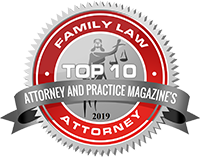Preparation of Wills, Trusts, and Power of Attorneys
There is peace in knowing that your loved ones will be taken care of after you are gone. We routinely prepare estate packages and use our experience to help others navigate the complex maze of wills and estate planning in North Carolina.
Wills
A Will is a legally binding document or oral statement that explicitly explains an individual’s after-death desires for his or her property and affairs. To execute a will, the individual must be 18 years or older, of sound mind, and attested by at least two competent witnesses.
Living Wills
A Living Will, also known as an “Advance Directive for a Desire for a Natural Death,” is a legal document drafted in accordance with North Carolina law that declares how an individual would like to be treated in the event that oneself is unable to make these decisions. A concern typically addressed through a Living Will includes whether that person would want to be kept alive through life-sustaining treatment options. A Living Will also addresses several potential end-of-life care scenarios. The wishes stated in a living will are carried out by another individual through a Health Care Power of Attorney.
Power of Attorneys
A Power of Attorney provides broad authorizations that may enable an appointed individual to make medical decisions, legal decisions, or financial or business decisions on behalf of another individual. Two common Power of Attorneys are General/Durable Power of Attorney and Health Care Power of Attorney.
General / Durable Power of Attorney
A General/Durable Power of Attorney provides an individual with an outline of how you want your financial matters handled. This power can be as broad or narrow as the appointee wishes. The powers can include the authority to handle the day to day expenses such as paying the mortgage, rent, utilities, employees, medical bills and so on. It is important to appoint an individual that you trust to carry out these key decisions.
Health Care Power of Attorney
A North Carolina Health Care Power of Attorney, also referred to as a Medical Power of Attorney, allows an individual to appoint another person to act on his or her behalf to make medical decisions. This extends to that appointed individual only in the event that the person granting the power is incapacitated, and is unable to make decisions on their own. Make sure your well-being is protected with a proper power of attorney and advance directive.
Trusts
With reliable information and proven experience to support legal and financial decisions, we help our clients to maintain a comfortable life. Our understanding of this discipline will help to provide long-term financial security and disbursement of assets through establishing the appropriate documents to meet your individual needs.
Special Needs Trust
Our firm provides special needs clients with compassionate and comprehensive care. An additional layer of protection can be added through creating a Special Needs Trust. There are steps and measures that we can guide you on to make sure your special needs child is taken care of after you are gone. A Medicaid Exemption Trust is a common Trust established to make sure your special needs child is still capable of receiving one’s quality of life outside of government allotted assistance.
Revocable and Irrevocable Trust
A personalized Trust is as unique as the individual it is created for. A Trust is created to offer substantial asset protection, tax benefits, assistance in qualifying for government programs such as Medicaid and keeps your estate from going through the long process of probate. You want the proper documentation in place to ensure that your loved ones are protected, and not for this decision to be made by the courts. A Revocable Trust is often used in estate planning. The creators of the trust can amend it at any time without the cooperation from other beneficiaries. The creator of the trust can also revoke it at any time and undo the Trust completely. In contrast to a Will, a Trust operates while the creator is still living and extends after they are deceased. Will only takes effect after the person is deceased. An Irrevocable Trust is one that the grantor cannot revoke in whole or in part. An Irrevocable Trust can be modified or terminated only if the beneficiary consents. When the trust is created and assets are transferred, the grantor extinguishes any rights to access or ownership. This helps to remove the asset from your estate for legal and tax purposes.
Capital to Coast NC Law Group has a skilled and knowledgeable team to simplify your estate planning experience.
To learn more about how Capital to Coast NC Law Group can assist you in drafting a will, trust or other estate documents, contact our law firm today via this quick inquiry form to schedule your appointment in Cary, NC, Greenville, NC, or Emerald Isle, NC.












